82 F. high in St. Cloud Tuesday.
83 F. average high on July 12.
87 F. high on July 12, 2015.
13.87" precipitation at STC so far in 2016.
13.82" average precipitation for STC, to date, as of July 12.
July 13, 1933:
An intense heat wave affects Grand Marais with a high of 90, extremely
rare for that location. Most of Minnesota would exceed 100 degrees on
this date.
July 13, 1890:
A tornado hits Lake Gervais north of St. Paul. People rush from St.
Paul to help victims and look for souvenirs. One reporter notes that
'nearly everyone who returned from the disaster last evening came laden
with momentoes (sic) denoting the cyclone's fury.'
"Ridge Riders" and "Training Storms": a Recap
I've
said it before, I'll say it again: when weather stalls bad things tend
to result: epic heat waves, historic droughts, biblical floods. Tell
that to residents of northern and central Minnesota, where 1-2 MONTH'S
worth of rain fell on Monday; as much as 5-9 inches.
What
happened? Thunderstorms often flare up along the northern edge of heat
waves. These "ridge rider" storms intensify at night; and weaken during
the day. On a smaller scale: repeated waves of thunderstorms can flare
up along warm frontal boundaries, each cell dropping 1-2 inches of rain
before moving on. These are "training storms". Much like the cars in a
train pass over the same section of track, multiple rounds of T-storms
can push from west to east, unleashing ridiculous amounts of rain. June
and July are peak months for warm frontal (floods).
A nice Wednesday gives way to a cooler, fresher front with instability showers popping up Thursday into the weekend. Next week still looks hot; highs well into the 90s by Tuesday & Wednesday; an extended spell of heat that will dominate Minnesota weather into late July.
Central Minnesota Tornado Overview. The Twin Cities office of the National Weather Service has a
preliminary assessment of the tornadoes that struck from Litchfield to Watkins and Waite Park Monday: "
On
Monday evening July 11, 2016 thunderstorms produced at least
four tornadoes across central Minnesota. The National Weather Service in
the Twin Cities has sent out 3 storm survey crews to assess the damage.
As of Tuesday morning, there has been only one minor injury reported.
Based on the preliminary storm reports, areas hardest hit were the town
of Watkins MN, northwest Litchfield MN, as well as locations near St
Cloud MN. This part of the state is highlighted by the red box on the
map to the right. Further information is given below and additional
facts about the strength of the tornadoes will be released as the
become available."
Two of the 3 survey teams have completed their investigations. Litchfield
Tornado Damage Survey Results: EF-2 strength with a max wind of 115
mph. Length was 1 mile with a max width of 150 feet;
Watkins Tornado Damage Survey results: EF-2 strength with max wind of 125 mph. Length: 2 miles. Max width: 600 feet.
Animation credit: "The loop
shows radar reflectivity (left) and storm relative velocity (right) for
2 hours from 5 PM to 7 PM CDT. The storm southwest of Litchfield
showed rotation as it moved northeast toward St Cloud MN."
Flooding Is Big Concern Day After Tornadoes Hit Central Minnesota. Here's an excerpt from
The Star Tribune: "...
A
lot of the flooding has subsided,” Christenson said, “but the roads are
impassable.” Rain totals included 9 inches in Hinckley, 8.9 inches in
Brainerd, 7 inches in Willow River, 6.13 inches in Aitkin, 5.6 inches in
Nisswa and 5.49 inches in Breezy Point, the National Weather Service in
Duluth reported. Authorities in Litchfield and Watkins said 15 to 20
homes were damaged by two midafternoon tornadoes. A handful of homes in
Litchfield were completely destroyed as were some in Watkins, Meeker
County Sheriff Brian Cruze said, adding the tornado was the worst he’d
seen in 20 years..." (Map: AerisWeather).
10" Rains in Wisconsin.
The Golden Rain Gauge Award (that nobody seems to want) goes to
Wascott, Wisconsin, where a whopping 10" of rain fell as of 7am
Tuesday. Amazing. Map: Duluth NWS.
Carlton County: "Memories of the 2012 Flood".
Duluth News Tribune reports.
Slight Severe Risk Southeastern Minnesota, Southwest Wisconsin. NOAA SPC shows a slight risk of strong to severe storms firing along the leading edge of cooler, drier air later today.
Trending Comfortable Later This Week.
Before we muddle through potentially significant heat (and humidity)
next week temperatures cool off to comfortable levels; a nice Manitoba
breeze setting in Thursday and Friday with highs in the 70s. ECMWF
guidance: WeatherBell.
New Level of Stinking-Hot Next Week?
GFS guidance continues to hint at surface temperatures approaching 100F
by Friday of next week. A lot would have to happen for 100 degrees in
the metro: bright sun, gusty southwest winds, a lack of convection
nearby. I wouldn't rule it out, but a streak of 90s is likely.
Sauna-Worthy Heat Indices Latter Half of Next Week.
It's the same GFS model data, but factoring dew points at or just above
70F and highs well up into the 90s we could - in theory - have 5 days
in a row with a heat index above 100F during the afternoon hours.
Something to look forward to. Graphic: Aeris Enterprise.
The 10 Hottest Counties in the U.S. Send this link to a friend in Naples. Here's an excerpt from
The San Jose Mercury News: "...
WeatherDB, a weather data site that's part of Graphiq, wanted to find out which 10 counties experience the hottest weather. Using NOAA's Global Historical Climatology Network,
WeatherDB ranked the 10 hottest counties to live based off of annual
weather data collected from weather stations across the U.S. from 1981
to 2010. Counties are ranked by their average temperature, and those
with a population of less than 100,000 people were not considered. Ties
were broken by a county's average high temperature..."
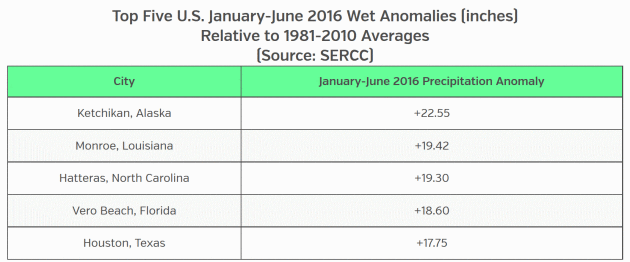
America's Most Extreme Weather Cities 2016: A Mid-Year Report Card. Here's an excerpt of an interesting post at
WunderBlog: "...
Again,
simply taking straight rainfall may not necessarily get the whole story
of who has far exceeded what is typical. With the exception of one
particularly wet southeast Alaska location, the biggest rainfall
overachievers so far have all been near the Gulf Coast or Southeast
Coast. Hatteras, Monroe and Vero Beach each set their record wet
January-June. Moore Haven, Florida (34.46 inches of rain), and Lander,
Wyoming (15.72 inches of precipitation), also set their new record first
six months of any year..."
What The National Weather Service Social Media Warning Stream Has Shown Us. Ian Livingston has some interesting information and perspective at
Capital Weather Gang: "
As
someone fascinated with the warning process and how it is communicated
to the public, I have followed the severe warning accounts since
inception in June 2014. Seeking out the zero warning, or one with no ambient population,
is actually something of a hobby. (I know, don’t judge.) Looking for
more, I made a data request on what has been issued since the Twitter
accounts became operational. I was fortunate enough to connect up with
the National Weather Service, and they supplied the raw data they’ve
obtained while developing these channels..."
Seattle Crowned "Least Severe" Weather Spot In The Nation. Not a good place to chase tornadoes. Here's an excerpt from KOMO News: "Fresh off last month's blog showing
Seattle was the only spot in the lower 48 with no severe thunderstorm
warnings this year comes more research that cements Western Washington
as among one of the most boring places in the nation when it comes to
severe weather. Ian Livingston with the Washington Post's Capital Weather Gang has been looking into the effectiveness of the National Weather Service's social media efforts
in getting severe weather warnings to the public, also learning more
about when you can be expected to get severe weather warnings..."
Heat Waves Kill. Now We Know Why.
Increase the background temperature by only 1-2C and the risk of
(extreme) heat goes up substantially; rare events are suddenly not as
rare. Here's an excerpt from
U.S. News: "...
What
the study shows is that climate change was responsible for 506 of the
735 summer deaths recorded in Paris during the heat wave, while 64
deaths out of a total of 315 heat-related deaths in London were caused
by global warming. The study used the new tools researchers have at
their disposal to put the results of much better climate model
simulations of the European heat wave into a health impact assessment of
death rates. In order to accurately project the cause of those deaths,
the researchers ran thousands of high-resolution regional climate model
simulations..."
*
China's Worst Flooding Since 1998.
Bloomberg reports.
Future of Natural Gas Hinges on Stanching Methane Leaks.
The New York Times reports; here's an excerpt: "...
Methane has many sources, including flatulent cows and decomposing landfills. But the oil
and gas industry may be the nation’s biggest emitter of leaked methane,
gas that might otherwise stay underground for eons. While coal still
predominates in many parts of the world, especially in emerging
economies, natural gas has already replaced coal as the United States’
leading fuel for power plants. But the American energy industry lets
enough natural gas escape each year to meet the heating and cooking
needs of about seven million homes annually. That runaway gas also
creates about the same short-term climate impact as 240 coal-fired power
plants, according to the Environmental Defense Fund..."
Photo credit: "
Ronal Torres, a technician with Southwestern Energy, uses an infrared camera to survey for leaks in Damascus, Ark."
Credit Andrea Morales for The New York Times.

TODAY: Warm sunshine; showers far northern Minnesota; few strong/severe storms over southeast MN. Winds: W 10-20. High: 84
WEDNESDAY NIGHT: Breezy, more comfortable. Low: 62
THURSDAY: Cloudier, cooler, few PM showers. Winds: NW 10-15. High: 75
FRIDAY: More sun, isolated shower late. Winds: NW 8-13. Wake-up: 60. High: 78
SATURDAY: Fading sun, risk of a T-shower. Winds: S 10-15. Wake-up: 62. High: 82
SUNDAY: Unsettled, few T-storms nearby. Winds: SE 7-12. Wake-up: 65. High: 84
MONDAY: Plenty of warm sunshine. Winds: S 3-8. Wake-up: 67. High: 86
TUESDAY: Sticky sun, heating up rapidly. Winds: SE 8-13. Wake-up: 68. High: 91
Climate Stories...
Meteorologists Shouldn't Just "Stick To The Weather", They Should Openly Discuss Climate Change. Something
I've been trying to do since the last 90s, for better or worse. We need
to do a better job connecting the dots, because climate and weather are
flip-sides of the same coin. Jason Samenow at
Capital Weather Gang agrees: "...
However,
despite overwhelming evidence that climate change is impacting weather,
George Mason University’s Center for Climate Change Communication found that
only “a minority” of television weathercasters “feel very comfortable”
presenting climate change information on air. Most say discussing
climate change won’t help their careers. Some fear discussing the role
of climate change on weather will upset their viewers — or even newsroom
management. But TV weathercasters need to find the courage to
communicate about climate change responsibly. The science is on their
side..."
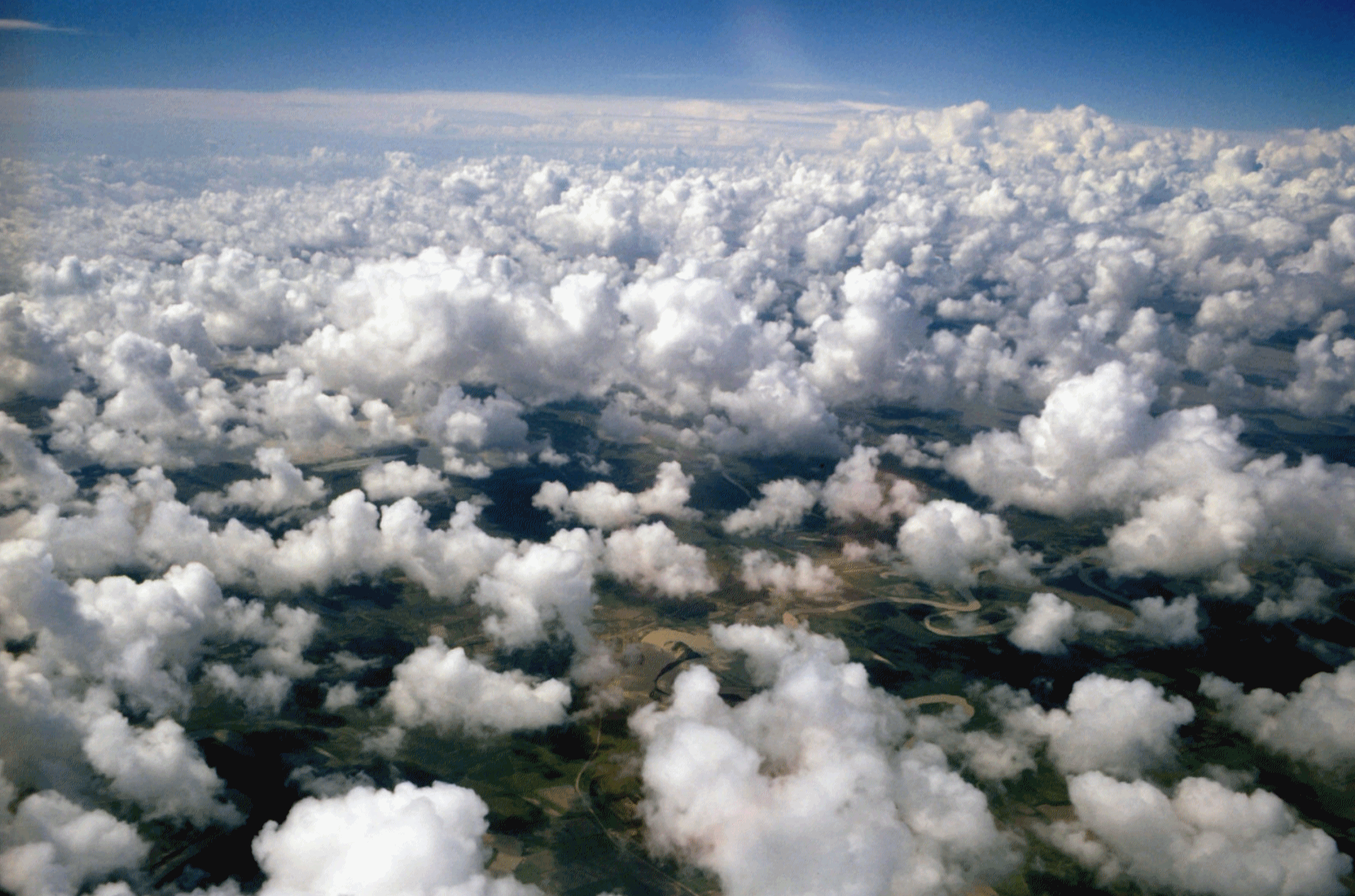 Climate Change May Already Be Shifting Clouds Toward the Poles
Climate Change May Already Be Shifting Clouds Toward the Poles.
NPR follows up on new research: "
The
way clouds cover the Earth may be changing because of global warming,
according to a study published Monday that used satellite data to track
cloud patterns across about two decades, starting in the 1980s. Clouds
in the mid-latitudes shifted toward the poles during that period, as the
subtropical dry zones expanded and the highest cloud-tops got higher.
These changes are predicted by most climate models of global warming,
even though those models disagree on a lot of other things related to
clouds, says Joel Norris, a climate scientist at the University of California, San Diego..."
Photo credit: "
About
70 percent of Earth is covered by clouds at any given moment. Their
interaction with climate isn't easy to study, scientists say; these
shape-shifters move quickly."
NOAA/Flickr
Fossil Fuel Industry Risks Losing $33 Trillion to Climate Change.
Bloomberg reports: "
The
fossil fuel industry risks losing $33 trillion in revenue over the next
25 years as global warming may drive companies to leave oil, natural
gas and coal in the ground, according to a Barclays Plc energy analyst.
Government regulations and other efforts to cut carbon emissions will
inevitably slash demand for fossil fuels, jeopardizing traditional
energy producers, Mark Lewis, Barclays’s head of European utilities
equity research, said Monday during a panel discussion in New York on
financial risks from climate change..."
The Extreme Weather Defense Nobody Wants.
In theory a concrete home could survive major tornadoes and hurricanes
but are they worth the cost, and who wants to live in a bunker? Here's
an excerpt from
Bloomberg View: "...
People
have never caught on to concrete as a warm and fuzzy material," said
Richard Longstreth, an architectural historian at George Washington
University. The typical reaction is "'Oh, you live in a bunker,' or
something like that." Oh, and it would make the problem worse. "The
emissions in concrete production are huge," noted Alan Organschi,
who teaches at the Yale School of Architecture. "Concrete is a very
robust material, but it also is one of the very things that is producing
climate change." He said a better solution is building homes out of
heavy timber, which can be just as resilient as concrete and no more
expensive..."
Dems Look To Shame Exxon over Climate. Here's an excerpt from
TheHill: "...
In a joint resolution offered by Sen. Sheldon Whitehouse
(D-R.I.) and Rep. Ted Lieu (D-Calif.), the members say they disapprove
of “activities by certain corporations, trade associations, foundations
and organizations funded by those corporations to deliberately mislead
the public and undermine peer-reviewed scientific research about the
dangers of their products, and to deliberately cast doubt on science in
order to protect their financial interests.” The resolution equates the
fossil fuel industry to the tobacco sector, which was slammed by
lawsuits alleging it mislead the public about the dangers of smoking.
And it says fossil fuel companies should “cooperate with active and
future investigations into” their climate science..."
Senators Launch Resolution, Speech Blitz Calling Out #WebOfDenial Blocking Action on Climate Change. Here's a slightly different perspective from
DeSmogBlog: "
Today and tomorrow, at least 19 U.S. Senators who understand the need to clear the PR pollution that continues to block overdue climate policy action will speak out on the Senate floor in support of the Senate Web of Denial Resolution
calling out the destructive forces of fossil fuel industry-funded
climate denial. Championed by Senators Whitehouse, Markey, Schatz,
Boxer, Merkley, Warren, Sanders, and Franken, the resolution condemns
what they are calling the #WebOfDenial — “interconnected groups – funded
by the Koch brothers, major fossil fuel companies like ExxonMobil and
Peabody Coal, identity-scrubbing groups like Donors Trust and Donors
Capital, and their allies – developed and executed a massive campaign to
deceive the public about climate change to halt climate action and
protect their bottom lines...”
ExxonMobil: New Disclosures Show Oil Giant Still Funding Climate Science Denial. Here's a clip from
DeSmogBlog: "...
But the latest disclosures on donations by ExxonMobil,
reported publicly here for the first time, show it continues to support
organisations that claim greenhouse gases are not causing climate
change, or that cuts to emissions are a waste of time and money.
Organisations including the American Enterprise Institute, the American
Legislative Exchange Council and the National Black Chamber of Commerce
— all organisations with a record of misinformation on climate science
— all received grants in 2015 from ExxonMobil. The 2015 tally brings the
total amount of known Exxon funding to denial groups north of $33 million since 1998..."
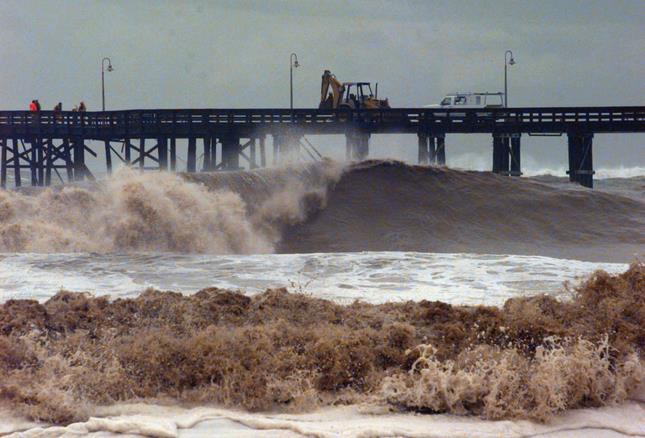 Food Shortages and Sea Level Rise U.S. Voters' Top Climate Change Concerns
Food Shortages and Sea Level Rise U.S. Voters' Top Climate Change Concerns.
The Guardian has the story: "...
Diminishing
food and water security and ruinous sea level rise are the leading
climate change concerns of a section of the American electorate that is
aghast at the lack of discussion of global warming during the
presidential debate. A Guardian US survey of its readers
found that pressure on food and water supplies is considered the most
important consequence of climate change. Sea level rise, which is set to
inundate coastal areas currently occupied by millions of Americans, is
second on the list of the most urgent issues..." (File photo: Nick Ut, AP).
Minnesota Advocates "Pleasantly Surprised" With New U.S. Bancorp Climate Policy. Here's the intro to a story at
Midwest Energy News: "
Minnesota climate activists say they are “pleasantly surprised” after Minneapolis-based U.S. Bancorp issued a new environmental policy
in June that will reduce lending for coal-fired power plants, coal
mines and other environmentally harmful projects. Two bank officials
have been meeting with MN350
members for the past several months on a new environmental policy that
would discourage lending to fossil fuel interests. Advocates say
the policy move — which they add could be stronger — is important
because U.S. Bancorp (the parent company of U.S. Bank) is one of the
largest financial services companies in the United States..."
Photo credit: "
Climate activists outside U.S. Bancorp’s headquarters in Minneapolis."
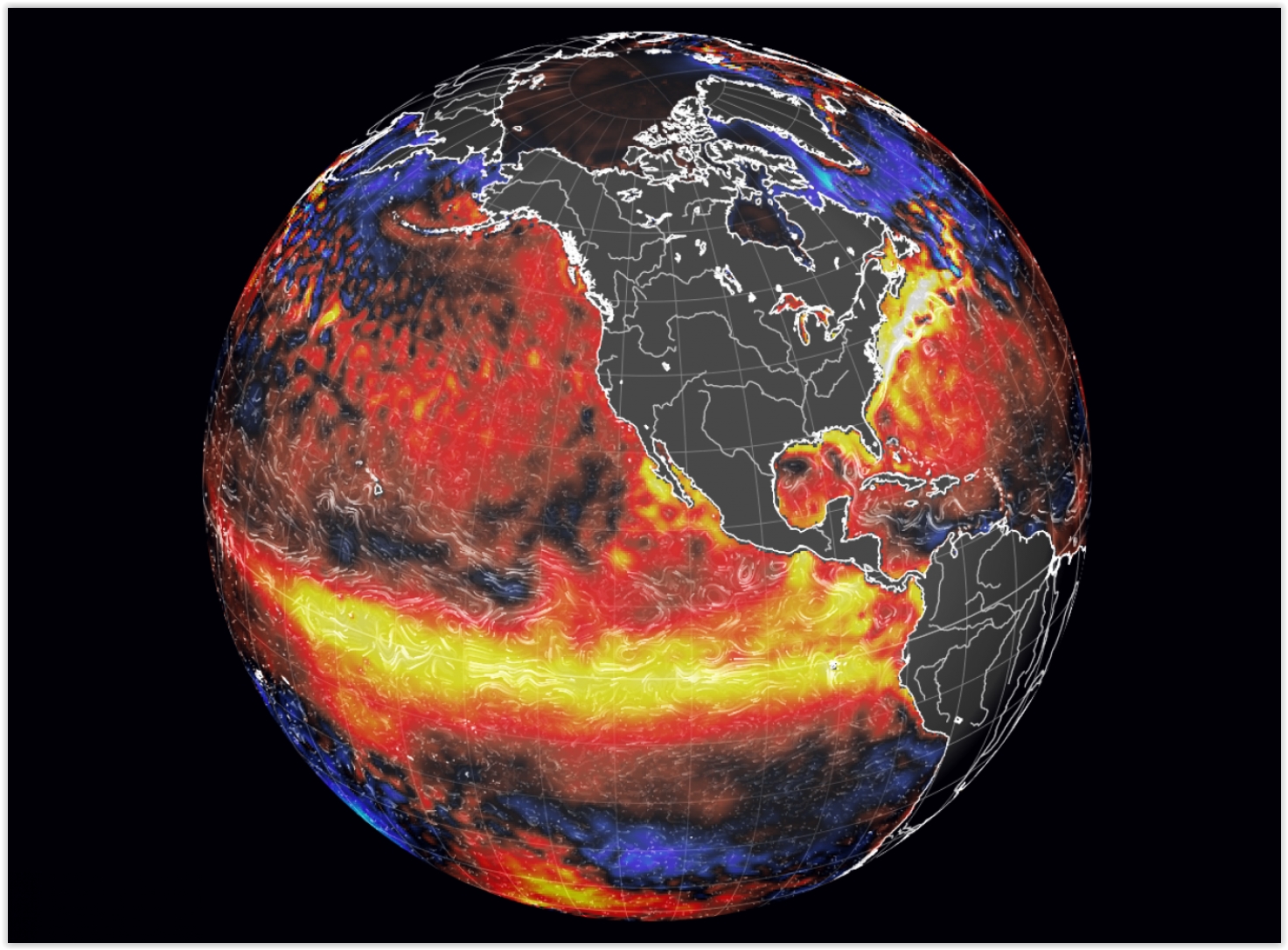 Another Inconvenient Truth: It's Hard To Agree How To Fight Climate Change. The New York Times
Another Inconvenient Truth: It's Hard To Agree How To Fight Climate Change. The New York Times reports; here's an excerpt: "...
But
the movement that started with a straightforward mission — to get more
people to appreciate the dangers of climate change as a precursor to
action — is feeling growing pains. What may seem like a unified front
has pronounced schisms, with conflicting opinions on many issues,
including nuclear power and natural gas,
that are complicating what it means to be an environmentalist in this
day and age. The factional boundaries are not hard and fast, with groups
shifting their positions as the science and waves of activism evolve..." (File image: earth.nullschool.net).
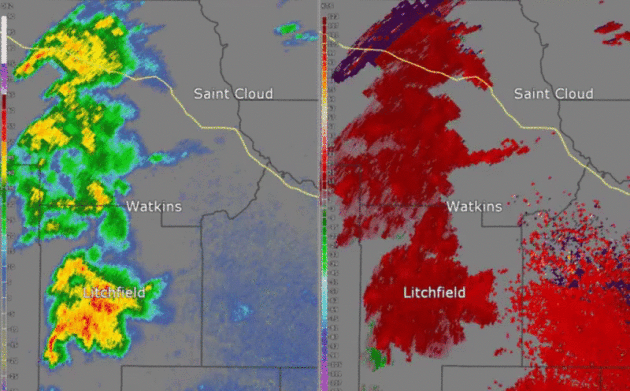
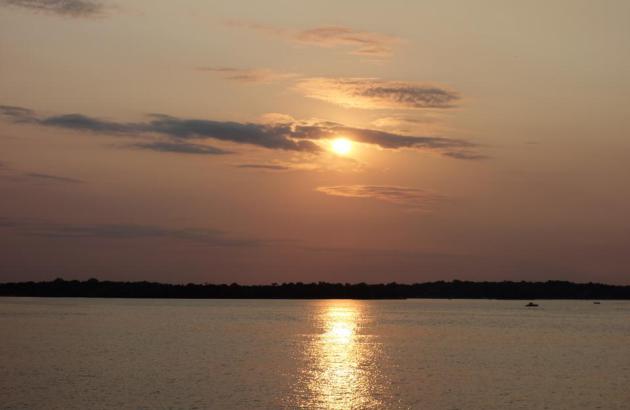
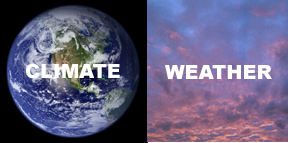


No comments:
Post a Comment